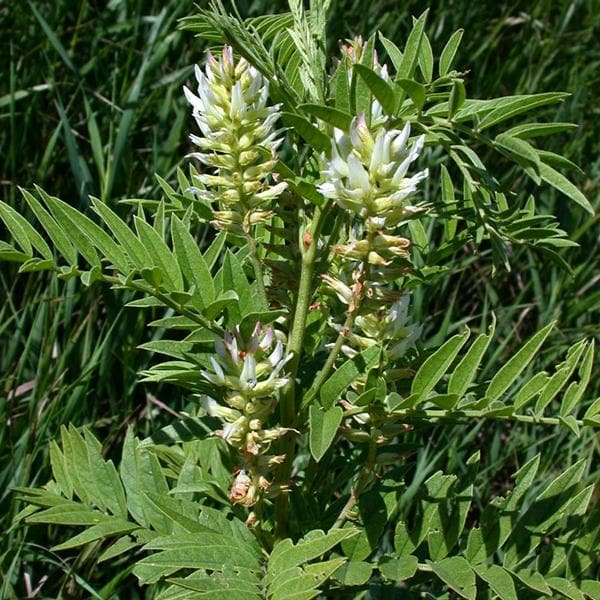
Liquorice - Plant
(MRP Inclusive of all taxes)
- Shipping ₹79 for entire order
- Dispatch in 7 days
- Country of origin: India

(MRP Inclusive of all taxes)
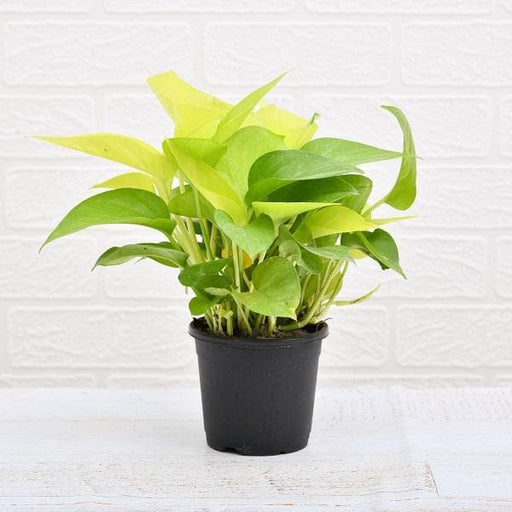 Save 29%
Save 29%
Air Purifier Money Plant with Pot The Air Purifier Money Plant, also known as Pothos or Epipremnum aureum, is a stunning indoor plant that...
View full details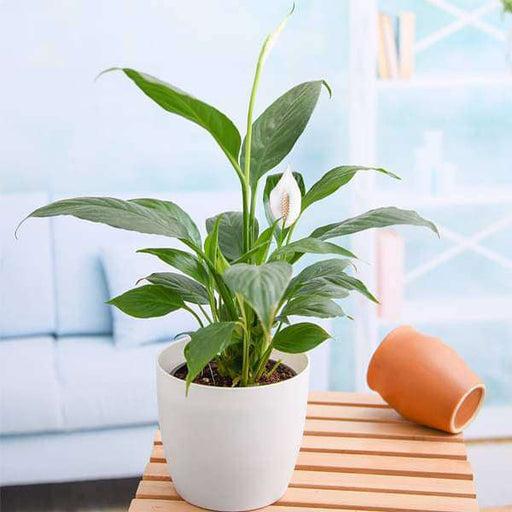
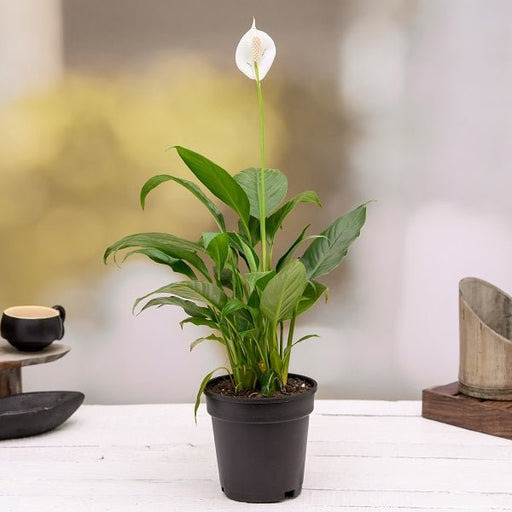 Save up to 15%
Save up to 15%
Peace Lily, Spathiphyllum - Plant The Peace Lily, scientifically known as Spathiphyllum, is a stunning houseplant celebrated for its elegant white...
View full details
 Save 25%
Save 25%
Jasminum sambac, Mogra, Arabian Jasmine - Plant Jasminum sambac, commonly known as Mogra or Arabian Jasmine, is a fragrant flowering plant...
View full details
 Save 18%
Save 18%
Combo Constituents Includes the Parijat Tree (Night-Flowering Jasmine), a culturally significant plant with fragrant flowers. Description The Pari...
View full details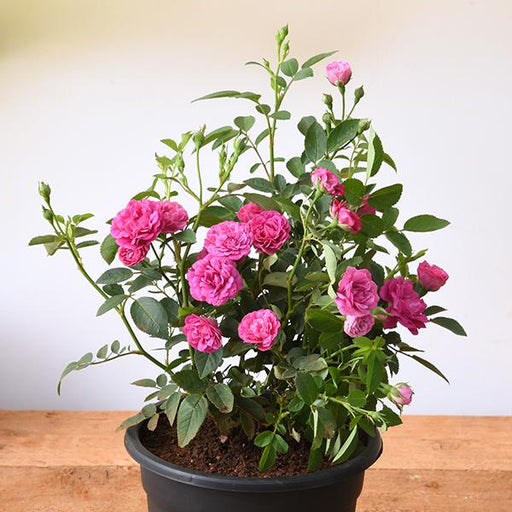
 Save 25%
Save 25%
Miniature Rose, Button Rose (Any Color) - Plant The Miniature Rose, also known as the Button Rose, is a charming and compact flowering plant that ...
View full details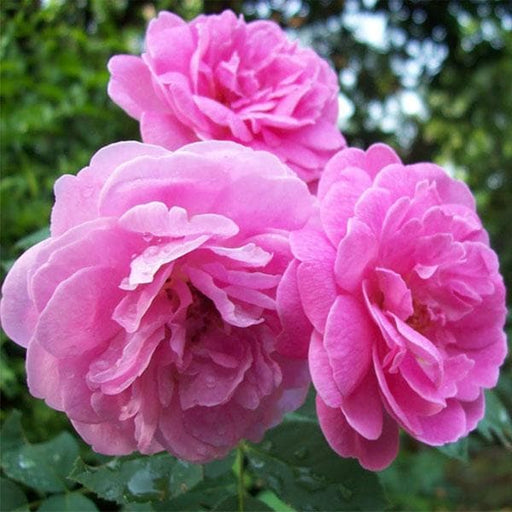 Save 25%
Save 25%
Damascus Rose, Scented Rose (Any Color) - Plant The Damascus Rose, also known as Rosa damascena, is a timeless symbol of beauty and romanc...
View full details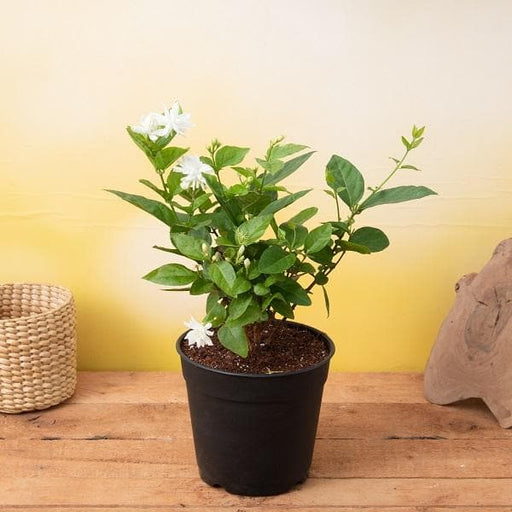
 Save 17%
Save 17%
Beautiful Fragrant Mogra, Arabian Jasmine Plant with Pot The Beautiful Fragrant Mogra, also known as Arabian Jasmine (Jasminum sambac), is...
View full details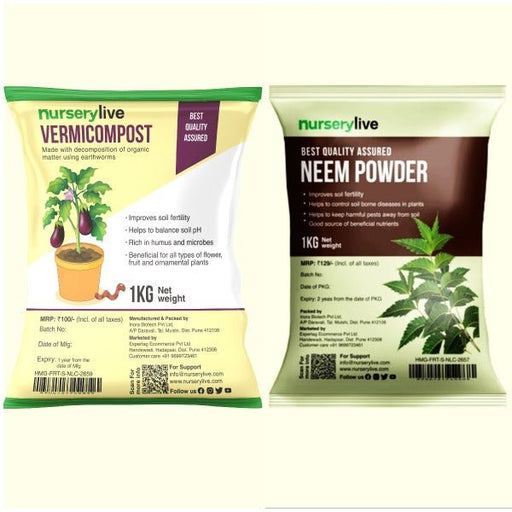 Save 15%
Save 15%
Pack of Vermicompost and Neem Cake for House Plants Transform your indoor garden with our premium Pack of Vermicompost and Neem Cake, spec...
View full details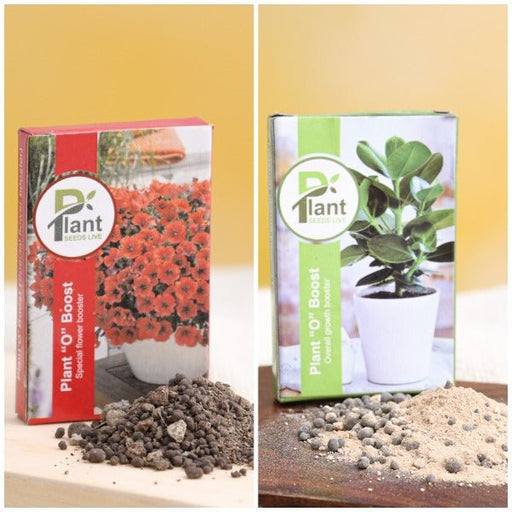
Pack of Plant Growth and Flower Boosters Unlock the full potential of your garden with our Pack of Plant Growth and Flower Boosters! This ...
View full details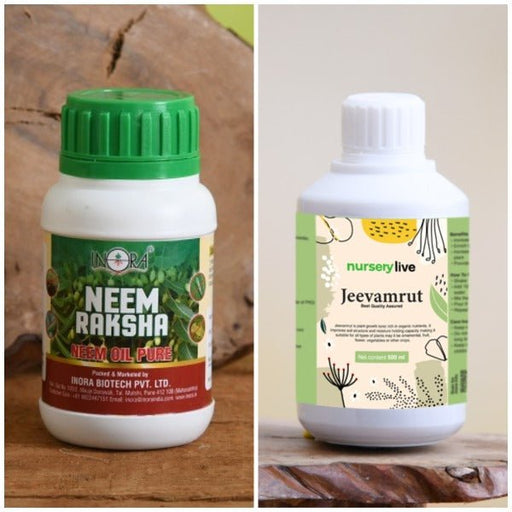 Save 38%
Save 38%
Combo of Jeevamrut and Neem Raksha for Easy Growth and Protection of Houseplants Transform your indoor garden with our exclusive combo of ...
View full details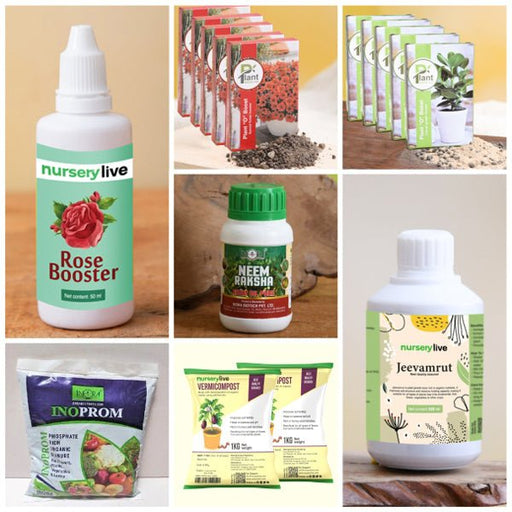 Save 22%
Save 22%
Plant Nutrients Kit (Pack of 16) for a Healthy Garden Transform your garden into a lush paradise with our Plant Nutrients Kit, featuring 1...
View full details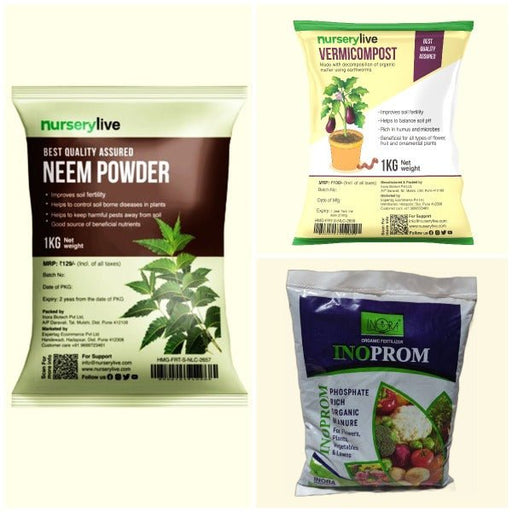 Save 16%
Save 16%
Combo of Top Plant Fertilizers Elevate your gardening game with our exclusive Combo of Top Plant Fertilizers, featuring two bags of premiu...
View full details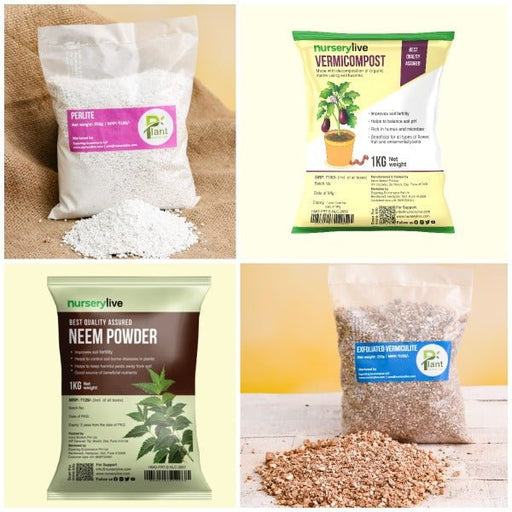 Save 24%
Save 24%
Pack of 4 Additives to Make Soil Healthy and Nutrient Rich Transform your garden into a thriving ecosystem with our Pack of 4 Additives de...
View full details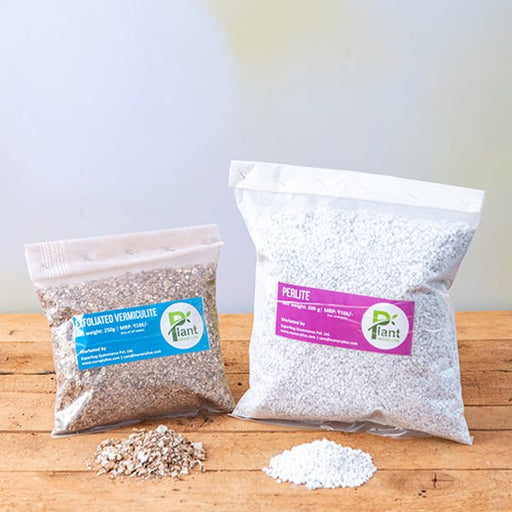 Save 30%
Save 30%
Transform your gardening experience with our premium Combo of Perlite and Vermiculite. This unique blend is designed to enhance soil aeration and ...
View full details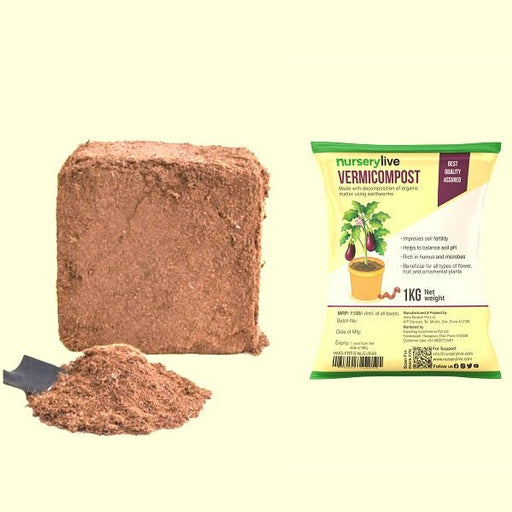 Save 27%
Save 27%
Combo of 2 Vermicompost and Cocopeat - Enrich Your Soil Naturally! Transform your garden into a thriving ecosystem with our Combo of 2 Ver...
View full details
 Save 35%
Save 35%
Best 6 Plants for Perfect Indoor Garden Transform your living space into a lush oasis with our curated collection of the Best 6 Plants for a...
View full details
 Save up to 50%
Save up to 50%
Mini Succulent Garden Pack Transform your space with our Mini Succulent Garden Pack, featuring a delightful collection of 4 any variety beautiful s...
View full details
 Save 30%
Save 30%
5 Best Fragrant Plants Transform your garden or indoor space into a fragrant paradise with our curated selection of the 5 Best Fragrant Plants. Th...
View full details
 Save 24%
Save 24%
Set of 2 Bonsai Looking Grafted Adeniums Transform your indoor or outdoor space with our exquisite Set of 2 Bonsai Looking Grafted Adenium...
View full details Save 45%
Save 45%
Top 4 Die Hard Succulents Pack Transform your indoor or outdoor space with our Top 4 Die Hard Succulents Pack, featuring a curated selecti...
View full details
 Save 30%
Save 30%
5 Best Indoor Plants Pack Transform your living space into a lush oasis with our '5 Best Indoor Plants Pack.' This carefully curated collection fe...
View full details
 Save 25%
Save 25%
Set of 4 Evergreen Air Purifier Plant Pack Transform your indoor space into a lush, green oasis with our Set of 4 Evergreen Air Purifier Pla...
View full details| SrNo | Item Name |
|---|---|
| 1 | Liquorice - Plant |
The Liquorice plant (Glycyrrhiza glabra) is a perennial herb renowned for its sweet-tasting root, which has been used for centuries in traditional medicine and culinary applications. This hardy plant can grow up to 4 feet tall and produces beautiful purple flowers, making it a delightful addition to any garden. Its roots contain glycyrrhizin, a compound that is 50 times sweeter than sugar, making it a popular ingredient in candies, herbal teas, and natural remedies.
What makes the Liquorice plant special is its rich history and versatility. Used by ancient Egyptians, Greeks, and Romans, it has been celebrated for its soothing properties and ability to support respiratory health. The plant thrives in well-drained soil and can adapt to various climates, making it an excellent choice for both novice and experienced gardeners.
One of the special features of the Liquorice plant is its ability to improve soil health. As a legume, it can fix nitrogen in the soil, enhancing fertility and promoting sustainable gardening practices. Additionally, its deep root system helps prevent soil erosion, making it an environmentally friendly choice for your garden.
The Liquorice plant contributes positively to the environment by improving soil health and preventing erosion. Its nitrogen-fixing ability enhances soil fertility, reducing the need for chemical fertilizers. By cultivating Liquorice, gardeners can promote biodiversity and support sustainable agricultural practices.
If you think liquorice is just a candy, think again! This plant is a powerhouse of health benefits. From soothing sore throats to aiding digestion, liquorice has been the unsung hero of herbal remedies. It’s like that friend who always shows up with snacks when you’re feeling down—only this time, the snacks are good for you! Packed with antioxidants and anti-inflammatory properties, liquorice can help you feel like a million bucks without the hefty price tag.
Ever thought about growing your own liquorice? It’s easier than you think! This perennial plant thrives in sunny spots and well-drained soil, making it the perfect addition to your garden. Just imagine the satisfaction of plucking your own liquorice roots and crafting your own herbal concoctions. It’s like being a wizard in your backyard, conjuring up potions that taste good and are good for you.
The uses of liquorice root are as diverse as a buffet table! From herbal teas to natural sweeteners, this root can do it all. It’s like the Swiss Army knife of the plant world—versatile and always handy. You can even find it in skincare products, where it works its magic to soothe and brighten your skin. Who knew that a humble root could be the secret ingredient in so many delightful concoctions?
Sip, sip, hooray! Liquorice tea is the warm hug your insides have been craving. With its naturally sweet flavor, it’s the perfect alternative to sugary drinks. Plus, it’s caffeine-free, so you can enjoy it any time of day without the jitters. Imagine curling up with a good book and a steaming cup of liquorice tea—pure bliss! It’s like a cozy blanket for your taste buds.
Let’s not forget the sweet side of liquorice! Liquorice candy has been a beloved treat for generations. Whether you love it or hate it, there’s no denying its unique flavor. It’s the quirky cousin at the candy family reunion—always bringing something different to the table. Plus, with its chewy texture, it’s a fun snack that keeps your jaw busy while you ponder life’s mysteries.
Licorice extract is like the concentrated essence of all things good about liquorice. This potent liquid can be used in cooking, baking, and even as a natural sweetener. It’s the secret weapon in your culinary arsenal, adding depth and flavor to your dishes. Just a few drops can transform a mundane recipe into a gourmet masterpiece. Who knew that a little extract could pack such a punch?
Caring for your liquorice plant is a piece of cake—if that cake were made of sunshine and well-drained soil! This hardy plant doesn’t require much fuss, making it perfect for both seasoned gardeners and newbies alike. Just give it some love, water, and the occasional pep talk, and it’ll reward you with lush foliage and sweet roots. It’s like having a pet that doesn’t need to be walked!
In the world of Ayurveda, liquorice is a superstar! Known as “Mulethi,” it’s revered for its balancing properties and ability to harmonize the body. It’s like the yoga instructor of herbs, guiding you toward wellness and tranquility. Whether you’re looking to detox or simply chill out, liquorice has your back. Who knew that a plant could be so zen?
Liquorice isn’t just a treat for your taste buds; it’s also a delight for your skin! With its anti-inflammatory and brightening properties, liquorice extract is a popular ingredient in skincare products. It’s like a spa day in a bottle, helping to soothe irritation and even out skin tone. Say goodbye to dull skin and hello to a radiant glow—thanks to this magical root!
Cooking with liquorice is like adding a dash of mystery to your culinary creations. Its unique flavor can elevate both sweet and savory dishes, making it a chef’s secret ingredient. Imagine a liquorice-infused sauce drizzled over roasted vegetables or a decadent dessert that surprises your guests. It’s the unexpected twist that keeps everyone guessing and coming back for more.
In the realm of herbal medicine, liquorice is a heavyweight champion! Its medicinal properties have been celebrated for centuries, making it a staple in traditional remedies. From cough syrups to digestive aids, liquorice has earned its stripes as a natural healer. It’s like having a mini pharmacy in your pantry—just grab a root and let the healing begin!
Liquorice - plant, or Glycyrrhiza glabra, is a perennial herb known for its sweet root. It’s not just a candy flavor; it’s a botanical superstar! This plant can grow up to 4 feet tall and has been used for centuries in traditional medicine and confectionery. Sweetness overload, anyone
Liquorice - plant thrives in sunny, well-drained soils, primarily in Mediterranean regions. Think of it as the sunbather of the plant world, soaking up rays in places like Greece and Turkey. It loves a warm climate, so if you’re in a chilly zone, it might just pack its bags and leave!
The liquorice - plant is a multitasker! It’s used in herbal medicine for soothing sore throats, in candies for that nostalgic taste, and even in cosmetics for its skin benefits. Talk about versatility! Whether you’re sweetening your tea or your skin routine, this plant has got you covered.
In moderation, yes! The liquorice - plant is generally safe, but overindulgence can lead to some not-so-fun side effects like high blood pressure. So, enjoy that liquorice candy, but maybe don’t turn it into your main food group. Balance is key, my sweet-toothed friend!
Imagine a sweet, earthy flavor with a hint of anise. The liquorice - plant’s root is like nature’s candy, offering a unique taste that can be polarizing. Some adore it, while others wrinkle their noses. It’s the love-it-or-hate-it of the plant world, but hey, more for the fans!
Absolutely! If you have a sunny spot and well-drained soil, you can cultivate your own liquorice - plant. Just remember, patience is a virtue; it takes a couple of years to mature. But once it does, you’ll have your very own sweet stash right in your backyard!
The liquorice - plant is packed with potential health benefits! It’s known for its anti-inflammatory properties, soothing digestive issues, and even supporting respiratory health. Just think of it as your herbal superhero, ready to swoop in and save the day—one sweet root at a time!
Not quite! While both have a sweet flavor, liquorice - plant and anise are different plants. Liquorice comes from Glycyrrhiza glabra, while anise hails from Pimpinella anisum. They’re like distant cousins at a family reunion—similar but with their own unique quirks!
You bet! The liquorice - plant can add a sweet twist to various dishes. Use it in marinades, desserts, or even cocktails for a unique flavor profile. Just remember, a little goes a long way—unless you want your dish to taste like a candy factory exploded!
While liquorice - plant has its perks, overconsumption can lead to headaches, high blood pressure, and potassium depletion. It’s like that friend who’s fun at parties but can get a bit too wild. Enjoy it wisely, and you’ll keep the good times rolling without the hangover!
Yes, indeed! The liquorice - plant has a long history in traditional medicine, often used to treat coughs, sore throats, and digestive issues. It’s like the wise old sage of the herbal world, offering remedies that have stood the test of time. Just don’t forget to consult a pro before diving in!